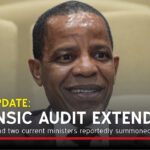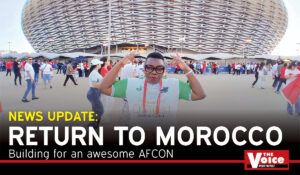Across the value chain of football, clubs are among the most important constituencies, perhaps second only to the players.
Yet they continue to get a raw deal from the quality of people elected to the Botswana Football Association (BFA) National Executive Committee (NEC).
In Botswana, if football clubs were to suddenly wake up and see the value of their power, there is likely to be a revolution.
Tragically, they opt not to exercise those powers, but instead delegate all of it to the brokers at regional levels, who in turn use it to bargain for personal positions in the NEC.
This, in itself, would not be such a terrible thing if the individuals so chosen to the NEC by the regions were of good quality.
However, the quality of the committee has been continually degenerating over the years.
I would argue that the late Ismael Bhamjee’s committee was of much higher standard than the current one.
Not only did Bhamjee’s organisation understand and love football, but they were also administratively savvy and technically equipped with governance skills.
Head-to-head, today’s BFA National Executive Committee would not be of any match to them.
It should not be lost on us that Bhamjee was BFA President more than 20 years ago!
This should be an indictment to clubs across the country.
Clubs make up regions. In other words, without clubs there are no such things as regions.
The trouble stems from too much emphasis on the position of President at election time. The result: taking eyes off the ball on individual skills and depth of other contenders.
The upshot of it all is a huge gap between the BFA President and other members of his executive committee.
Football management in Botswana primarily revolves around the President and the Generally Secretary.
At best, the executive committee members are rubber stamps.
One cannot help but wonder if at all many of the poor souls understand what the stakes are – beyond the stipends.
Football needs more and more people steeped in boardroom politics.
They should be able to read and interpret a balance sheet – all the merrier if more such people are former players!
For now, it does not seem to trouble teams that they have outsourced an immense chunk of their power in return for nothing. Or that the same power is now being used in a way to shortchange the very same clubs and their interests.
That must change!
It is high time clubs showed heightened awareness to football power dynamics; only then can they demand and agitate for a seat at the top table. They cannot forever remain content with the crumbs they get.
FIFA and Confederation of African Football (CAF) are in favour of election slates, where candidates from President downwards are elected as a block. Apparently, this is meant to avoid paralysis by disputes once elected.
I, for one, do not see that working for long after elections.
It is not unusual for people to stick together during a campaign only to fallout once in power.
What is important is not which slate is elected, but rather if the clubs’ interests are sufficiently safeguarded at the elections.
For BFA to change, the clubs should demand that change – in fact, they should lead it! That is much more important and indeed urgent in today’s world where an election to the NEC means different things to different people – with more and more people seeing it as a ticket to access FIFA dollars and other freebies.
The current set-up gives too much power to the regional high priests, especially the Chairman and the Secretary.
It is hard to see how these ‘regional high priests’ who currently have the power to vote at the BFA elections will on their own seek to help clubs to get more power.
The clubs have to fight to get back their power. And they better know that nobody is going to fight for them.
Being dealt such a low place down the food chain makes the clubs the biggest losers in the entire ecosystem.
The anomaly goes to the heart of everything that is wrong with local football.
It wouldn’t matter so much if it was not for the fact that ultimately it is the beautiful game that is on the receiving end.
When the clubs lose out, invariably it is football that loses out!





















